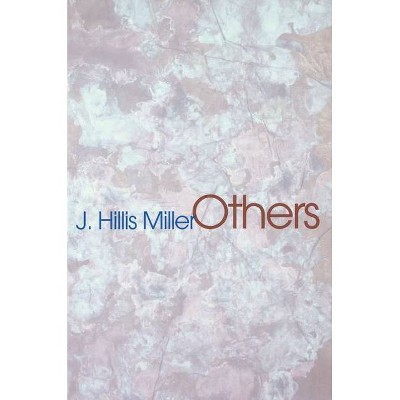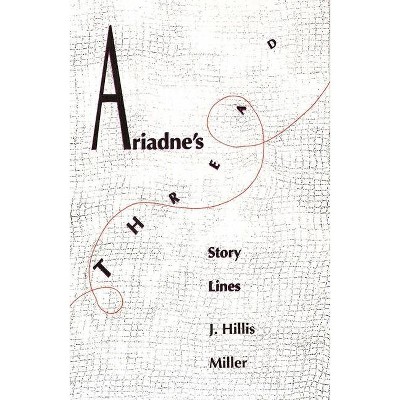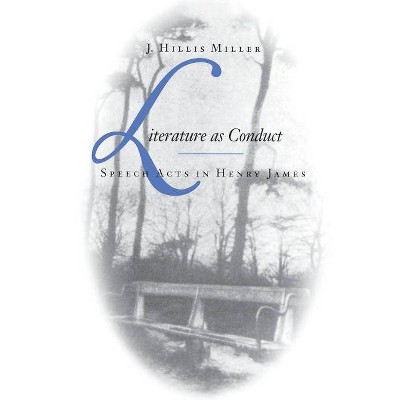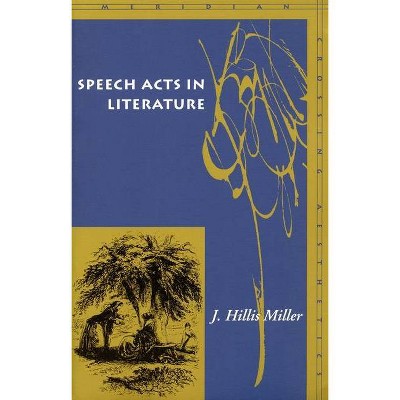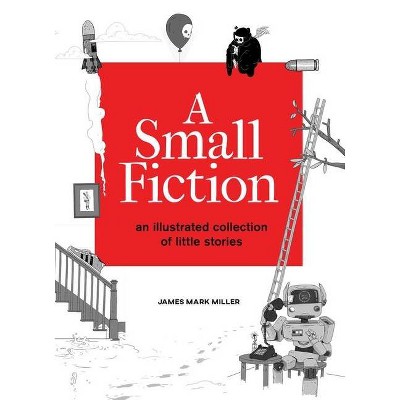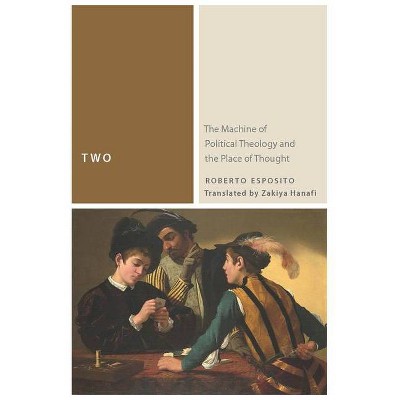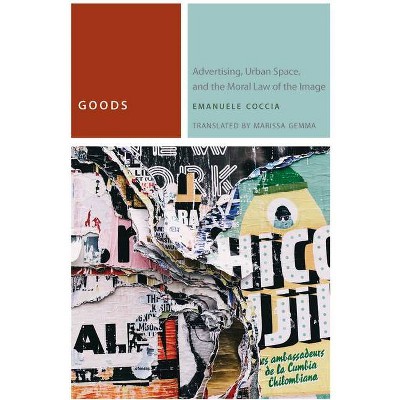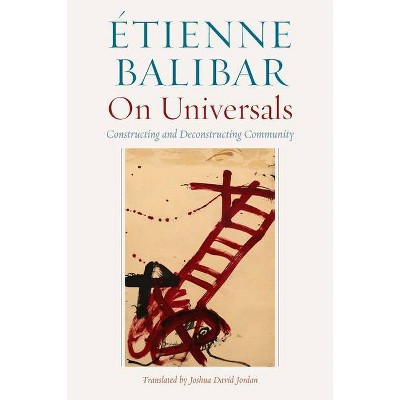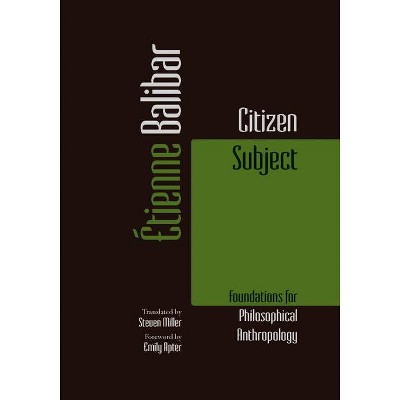Communities in Fiction - (Commonalities) by J Hillis Miller (Paperback)
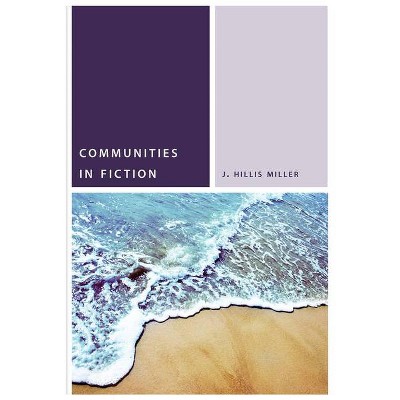
Similar Products
Products of same category from the store
AllProduct info
<p/><br></br><p><b> About the Book </b></p></br></br>Communities in Fiction reads in detail six novels or stories (one each by Trollope, Hardy, Conrad, Woolf, Pynchon, and Cervantes) in the light of theories of community worked out (contradictorily) by Raymond Williams, Martin Heidegger, and Jean-Luc Nancy for communities or non-communities in the real world.<p/><br></br><p><b> Book Synopsis </b></p></br></br><p>Communities in Fiction reads six novels or stories (one each by Trollope, Hardy, Conrad, Woolf, Pynchon, and Cervantes) in the light of theories of community worked out (contradictorily) by Raymond Williams, Martin Heidegger, and Jean- Luc Nancy. <p/>The book's topic is the question of how communities or noncommunities are represented in fictional works. Such fictional communities help the reader understand real communities, including those in which the reader lives. As against the presumption that the trajectory in literature from Victorian to modern to postmodern is the story of a gradual loss of belief in the possibility of community, this book demonstrates that communities have always been presented in fiction as precarious and fractured. Moreover, the juxtaposition of Pynchon and Cervantes in the last chapter demonstrates that period characterizations are never to be trusted. All the features both thematic and formal that recent critics and theorists such as Fredric Jameson and many others have found to characterize postmodern fiction are already present in Cervantes's wonderful early-seventeenth-century "Exemplary Story," "The Dogs' Colloquy." All the themes and narrative devices of Western fiction from the beginning of the print era to the present were there at the beginning, in Cervantes <p/>Most of all, however, Communities in Fiction looks in detail at its six fictions, striving to see just what they say, what stories they tell, and what narratological and rhetorical devices they use to say what they do say and to tell the stories they do tell. The book attempts to communicate to its readers the joy of reading these works and to argue for the exemplary insight they provide into what Heidegger called Mitsein-- being together in communities that are always problematic and unstable.</p><p/><br></br><p><b> Review Quotes </b></p></br></br><br>...this is an improbably moving, in places disturbing book. In its understated way, <i>Communities in Fiction</i> makes a quietly compelling case for how these old books can help us think our current situation.-- "Victorian Studies"<br><br>J. Hillis Miller's Communities in Fiction is a magnificent repondering of the Victorian novel's ability to render consciousness of self and other. Lucid and urbane, the book is a model of theoretical investigation that would be perfectly accessible to a nonspecialist reader.-- "--SEL: Studies in English Literature, 1500-1900"<br><br>Miller's <i>Communities in Fiction</i> examines the agonistic structure of communities: how the singularity of individual parts disrupt the organizing rationales they also seek to unite. Careful exposition of six novelists allows him to reflect on fictional representations of community as well as the communities that contextualize his study: his immediate disciplinary setting, the future of the humanities, and the political climate of the United States.-- "Journal of Modern Literature"<br><br>"What brings Communities in Fiction its true distinction is the facility and creativity with which Miller retrofits each of the major artifacts in his purview to his communal 'reality testing.' Communities in Fiction is a work utterly remarkable for its mastery, its erudition, its theoretical creativity, and its good sense. This wonderful volume is truly delightful."<b>-----Henry Sussman, <i>Yale University</i></b><br><br>Like Trollope, one of his subjects here, Hillis Miller has long perfected a style of warmly conversational lucidity. He communicates his pleasures and his perplexities as he guides you through readings that are at once leisurely and compelling.<b>-----Rachel Bowlby, <i>Princeton University</i></b><br><p/><br></br><p><b> About the Author </b></p></br></br><br><strong>J. Hillis Miller</strong> is UCI Distinguished Professor Emeritus at the University of California at Irvine. Earlier he taught at The Johns Hopkins University, and then at Yale. He has published many books and essays on 19th and 20th-century literature and on literary theory. His recent books include <em>For</em> <em>Derrida</em> (Fordham, 2009), <em>The Medium is the Maker: Browning, Freud, Derrida, and the New Telepathic Ecotechnologies </em>(Sussex Academic Press, 2009), and <em>The Conflagration of Community: Fiction Before and After Auschwitz</em> (Chicago: 2011). A book co-authored with Claire Colebrook and Tom Cohen, <em>Theory and</em> <em>the Disappearing Future: On de Man On Benjamin</em>, was published by Routledge in 2011, and his <em>Reading for Our Time: Adam Bede and Middlemarch</em> appeared from Edinburgh UP in March 2012. Miller is a Fellow of the American Academy of Arts and Sciences and a member of the American Philosophical Society. He received the Modern Language Association Lifetime Scholarly Achievement Award in 2005 and was in 1986 President of the MLA.<br>
Price History
Cheapest price in the interval: 30 on November 8, 2021
Most expensive price in the interval: 30 on December 20, 2021
Price Archive shows prices from various stores, lets you see history and find the cheapest. There is no actual sale on the website. For all support, inquiry and suggestion messagescommunication@pricearchive.us
